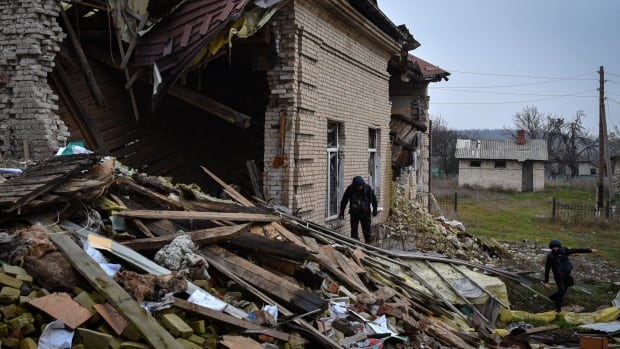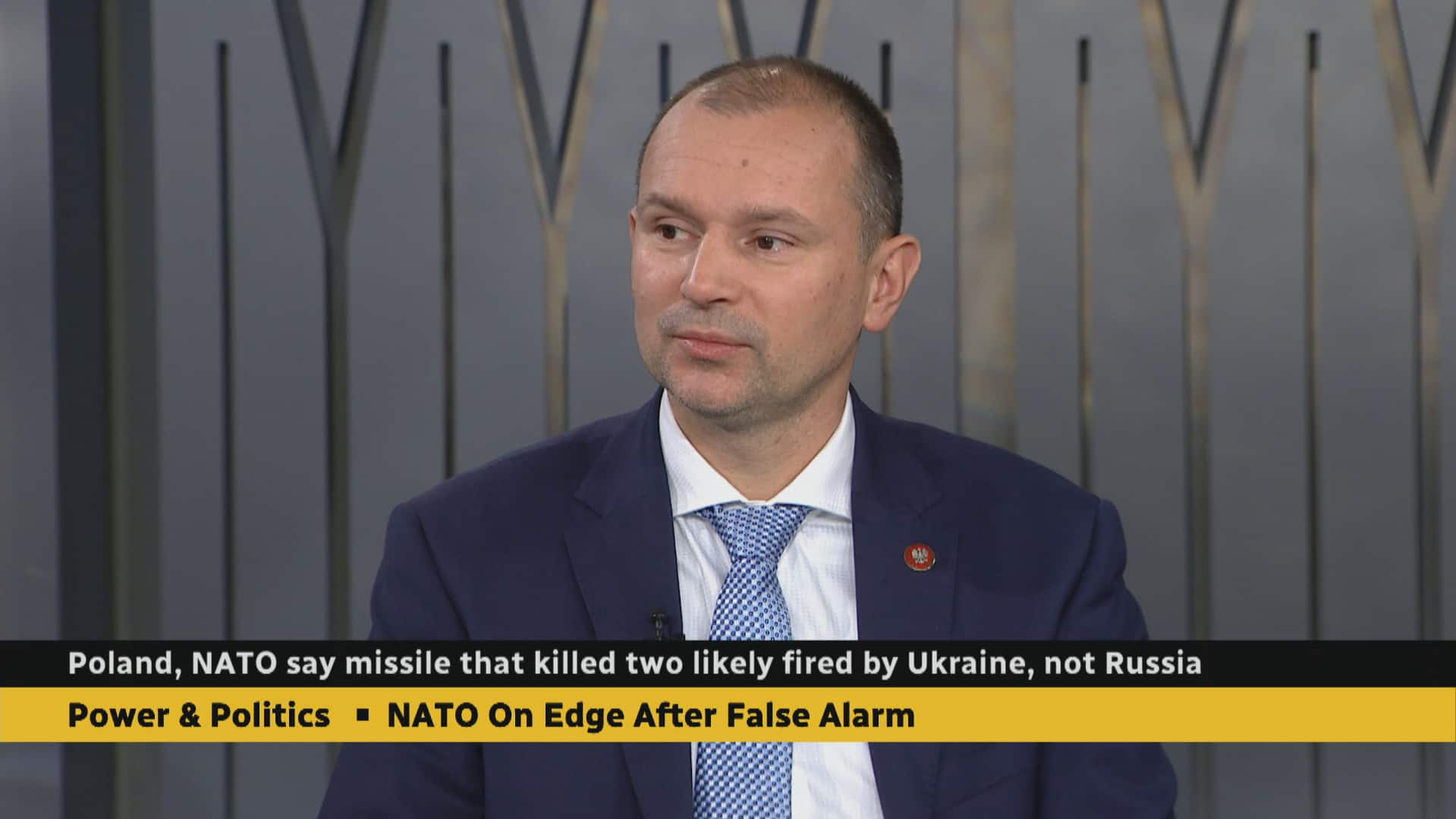
Russia pounded Ukrainian energy facilities and a huge rocket booster factory on Thursday in a new wave of missile strikes that Ukrainian officials denounced as terrorism.
Explosions were heard in several parts of the country, including the southern port of Odesa, the capital Kyiv, the central city of Dnipro and the southeastern region of Zaporizhzhia, where officials said two people were killed.
Prime Minister Denys Shmyhal said targets included the huge Pivdenmash defence plant in Dnipro, though he gave no details of any damage, and state energy company Naftogaz said gas production facilities in east Ukraine had been damaged or destroyed in a “massive” missile strike.
President Volodymyr Zelenskyy posted video footage, apparently shot from a car camera, showing a driver’s journey through Dnipro being interrupted by a huge blast ahead that sent flames and black smoke pouring into the sky.
“No matter what the terrorists want, no matter what they try to achieve, we must get through this winter and be even stronger in the spring than we are now, even more ready for the liberation of our entire territory than we are now,” said Zelenskyy.
At least 15 people were wounded in Dnipro, three were hurt in the northeastern city of Kharkiv and at least one was injured in Odesa, local officials said. Ukrainian officials also reported fierce fighting in parts of eastern Ukraine.
Ukrainian victory not likely in near term: Pentagon
Russia has stepped up attacks on Ukrainian energy facilities in recent weeks in some of the heaviest missile strikes since invading Ukraine in February. Many Ukrainians are subject to rolling blackouts as a result.
Ukraine has said that its air defences have knocked out many of the missiles and drones fired in the last few weeks. Kyiv city officials said four missiles and five Iranian-made Shahed drones were destroyed near the city on Thursday.
The latest attacks prompted Ukrainian officials to make new calls for its international allies to send more air defence systems.
On Wednesday, the top U.S. general, Army Gen. Mark Milley, chairman of the Joint Chiefs of Staff, played down chances of any outright military victory for Kyiv in the near term, saying Russia still had significant combat power in Ukraine despite setbacks.
But Milley and Defence Secretary Lloyd Austin both said the United States would support Ukraine for “as long as it takes.”
The Current18:56Russia’s continued aggression as winter creeps closer
As world leaders met at the G20 summit in Bali, Indonesia, Russia launched its biggest barrage of missiles yet. Today, those leaders released a declaration saying they “deplore in the strongest terms” Russia’s aggression against Ukraine. Matt Galloway talks with Sviatoslav Yurash, a member of parliament in Ukraine; and Kerry Buck, Canada’s former ambassador to NATO.
Ukraine alleges Kherson victims were tortured
The missiles came a day after Western leaders met both at the G20 in Indonesia and at a NATO session in Brussels, agreeing that Tuesday’s blast at a grain facility in Przewodow, Poland, near the Ukrainian border, was likely an errant Ukrainian anti-aircraft defence missile.
Zelenskyy demurred, saying, “I have no doubt that it was not our missile,” Ukrainian media reported on Wednesday. He said he based his conclusion on reports from Ukraine’s military, which he “cannot but trust.”
WATCH | Context of Przewodow missile tragedy important, says Polish ambassador to Canada:
“Whether it was a Russian missile, whether it was Ukrainian air defence, whether the missile came from Mars, it’s Russia’s fault,” said Polish Ambassador to Canada Witold Dzielski. “This situation would not happen if it was not for the Russians.”
Moscow had denied responsibility, and Russia’s Foreign Ministry said the “mayhem” around accusations of Russian involvement in the missile were “part of a systematic anti-Russian campaign by the West.”
Moscow’s forces retreated from the southern city of Kherson last week after a Ukrainian counteroffensive. It was the only regional capital Russia had captured since its Feb. 24 invasion, and the pullback was the third major Russian retreat of the war.
Investigators in the Kherson region uncovered 63 bodies bearing signs of torture after Russian forces left the area, Ukraine’s interior minister was quoted as saying on Thursday.
Interfax Ukraine news agency quoted the minister, Denys Monastyrsky, as telling national television: “The search has only just started, so many more dungeons and burial places will be uncovered.”
Russia denies its troops target civilians or have committed atrocities. Mass burial sites have been found in other parts previously occupied by Russian troops, including some with civilian bodies showing signs of torture.
Grain deal extended
Meanwhile, a deal aimed at easing global food shortages by facilitating Ukraine’s agricultural exports from its southern Black Sea ports was extended for 120 days on Thursday. Ukraine had asked for a one-year extension.
The agreement, initially reached in July, created a protected sea transit corridor and was designed to alleviate global food shortages by allowing exports to resume from three ports in Ukraine, a major producer of grains and oilseeds.
I welcome the agreement by all parties to continue the Black Sea Grain Initiative to facilitate the safe navigation of export of grain, foodstuffs and fertilizers from Ukraine.<br><br>The initiative demonstrates the importance of discreet diplomacy in finding multilateral solutions.
—@antonioguterres
Secretary General Antonio Guterres said the UN was also “fully committed to removing the remaining obstacles to exporting food and fertilizers from the Russian Federation” — a part of the deal Moscow sees as critical.
A drop in shipments from Ukraine following Russia’s invasion in February has played a role in this year’s global food price crisis, but there have also been other important drivers including the COVID-19 pandemic and continued climate shocks such as droughts in both Argentina and the United States.
